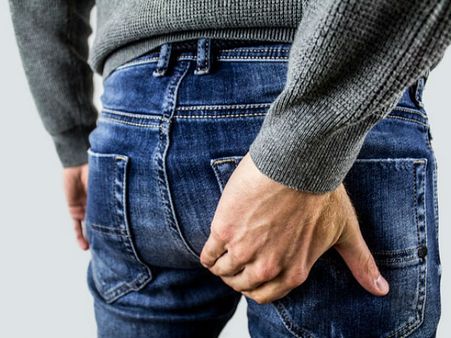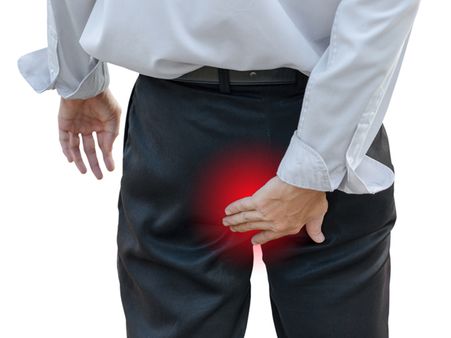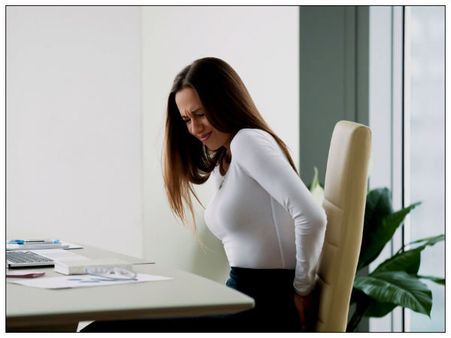Just In
- 43 min ago

- 4 hrs ago

- 5 hrs ago

- 8 hrs ago

Don't Miss
- Finance
 Hidden Tata Group Stock To Pay Highest Rs 25/Sh Dividend Soon; Turns Rs 9,000 To Rs 9 Lakh In Long Term
Hidden Tata Group Stock To Pay Highest Rs 25/Sh Dividend Soon; Turns Rs 9,000 To Rs 9 Lakh In Long Term - News
 Delhi-NCR Welcomes Sudden Weather Change: Rain Brings Relief From Heat, Watch Video Here!
Delhi-NCR Welcomes Sudden Weather Change: Rain Brings Relief From Heat, Watch Video Here! - Education
 Delhi University's Placement, Internship Fair Scheduled for April 24-25, Know more
Delhi University's Placement, Internship Fair Scheduled for April 24-25, Know more - Movies
 Vijay Deverakonda Attends His Security Guard's Wedding; VIRAL Video Makes Fans Dub Actor 'Humble & Great'
Vijay Deverakonda Attends His Security Guard's Wedding; VIRAL Video Makes Fans Dub Actor 'Humble & Great' - Sports
 Pakistan Cricket Team Needs Top-Order Strike Rate Shake Up; Babar Azam, Mohammad Rizwan Must Fire Runs 'Quick'
Pakistan Cricket Team Needs Top-Order Strike Rate Shake Up; Babar Azam, Mohammad Rizwan Must Fire Runs 'Quick' - Technology
 Xiaomi Robot Vacuum Cleaner S10, Handheld Garment Steamer, and Redmi Buds 5A Launched in India
Xiaomi Robot Vacuum Cleaner S10, Handheld Garment Steamer, and Redmi Buds 5A Launched in India - Automobiles
 Nissan Magnite Achieves 1 Lakh Unit Sales Milestone: Consistency Helps
Nissan Magnite Achieves 1 Lakh Unit Sales Milestone: Consistency Helps - Travel
Kurnool's Hidden Gems: A Guide To Exploring India's Lesser-Known Treasures
What To Do If A Haemorrhoid Bursts?
Haemorrhoids, or as otherwise referred to as piles, can give you some troublesome and painful moments. There could be a variety of causes for this ailment such as increased pressure on veins during pregnancy or due to strained bowel movements. Sometimes a clot can form into a haemorrhoid. Although not dangerous, they are highly painful. Certain treatments and lifestyle changes can help in eliminating troubles associated with piles.

What Are Haemorrhoids?
Haemorrhoids appear as swollen veins in the lower rectum and anus. They might be located inside the rectum (internal) or under the skin surrounding the anus (external). Piles is quite common. Poor diet with a limited intake of fibre and water can cause haemorrhoids due to constipation.
Piles can also occur when one is obese, due to increased pressure after sitting for a long duration. For few, there could be no symptoms associated with haemorrhoids while for some it could itching, bleeding and burning. It makes sitting down quite uncomfortable.

Can Haemorrhoids Burst?
When a blood clot forms inside the vein, it turns into thrombosed haemorrhoids. When it becomes full of blood, it can burst. This can cause bleeding for a little time. A thrombosed haemorrhoid is extremely painful just before it bursts. Once it bursts open, the extra pressure due to the blood built up is released, giving you a certain amount of relief. However, if you continue to face pain along with the bleeding for a long duration, then it is more likely to be a bleeding haemorrhoid and not a burst haemorrhoid.

What Are The Signs Of A Burst Haemorrhoid?
Haemorrhoids are accompanied by intense itching, pain and a burning sensation. When it bursts open, bright red colour bleeding occurs for quite some time.
Most of the times, internal haemorrhoids go unnoticed. This is because there might be no pain or itching as there are fewer nerve endings inside the rectum. Most of the time internal haemorrhoids are noticed when there is rectal bleeding due to the rupture of the haemorrhoid.

How To Treat The Bleeding?
There are plenty of over-the-counter creams and medicated wipes available to treat ruptured haemorrhoids. To stop the bleeding, you can stay in bed with your feet elevated using pillows. This relieves pressure on the area of the ruptured haemorrhoids. This would thus decrease the blood flow and in turn stop the bleeding. You can reduce the swelling of the area by applying a cold pack. Over-the-counter medication can also help in reducing the pain and inflammation.
Bleeding due to a ruptured haemorrhoid can last for around a few seconds to a maximum of 10 minutes. The area also might occasionally bleed in between bowel movements.
Most of the time, the ruptured haemorrhoid would not require any specific, prolonged treatment. The bleeding too should stop after a while. However, it would be best to soothe the area and keep it clean till it heals. A sitz bath is recommended. This would increase the blood flow to the area around the ruptured haemorrhoid, thus aiding and promoting quick healing.
Follow
the
below-mentioned
steps:
•
Fill
your
bathtub
with
about
4
inches
of
warm
water.
Ensure
that
the
water
temperature
is
bearable
and
it
is
not
too
hot.
•
Soak
the
area
of
the
ruptured
haemorrhoid
in
this
warm
water
for
around
20
minutes.
•
To
ensure
that
the
affected
area
is
completely
submerged
in
the
warm
water,
you
can
bend
your
knees
or
put
your
legs
out
of
the
edges
of
the
bathtub.
•
Gently
pat
the
area
with
a
clean
towel.
Do
not
rub.
Keep the area clean and dry. You can opt for a daily sitz bath in case necessary.

What Are The Complications?
Most of the time, the swelling and pain associated with haemorrhoids would subside in a few weeks time. However, prolonged anal bleeding might need to be evaluated by a doctor so that any health complications can be avoided.
If there is continuous anal bleeding for more than 10 minutes after the rupture of a haemorrhoid, then you should consult a doctor. The bleeding might be for reasons other than that of haemorrhoids. There could be serious underlying issues such as anal cancer or colorectal cancer.
Apart from bleeding, the other signs that you would need to note and inform the doctor about are the following:
•
Nausea
or
vomiting
•
Dizziness
•
Fever
•
Abdominal
pain
•
Changes
in
the
colour
or
consistency
of
stool
•
Anal
pain
•
Weight
loss
•
Changes
in
the
bowel
movement
habits
•
Lightheadedness
Ruptured haemorrhoids can sometimes turn into a chronic problem, but these usually heal quickly for most people.
Remember, severe haemorrhoids are best treated by a doctor. However, you can opt for home remedies if the pain is mild and unusual, which could be because of an inflamed or irritated haemorrhoid.
-
 healthWhat Your Tongue Reveals About Your Health: Wellness And Warning Signs You Need To Know
healthWhat Your Tongue Reveals About Your Health: Wellness And Warning Signs You Need To Know -
 healthHow Can You Protect Yourself From Extreme Heat? Dos And Don’ts To Follow
healthHow Can You Protect Yourself From Extreme Heat? Dos And Don’ts To Follow -
 healthRussian Influencer Starves His Newborn To Death With Sunlight Diet, Know Dos And Don’ts Of This Diet
healthRussian Influencer Starves His Newborn To Death With Sunlight Diet, Know Dos And Don’ts Of This Diet -
 healthExclusive: Expert Shares Impact of Heat Waves on Infectious Disease Transmission
healthExclusive: Expert Shares Impact of Heat Waves on Infectious Disease Transmission -
 healthExclusive: Doctor Shares Why Women Should Prioritize Health, Key Resolutions For Well-being And Vitality
healthExclusive: Doctor Shares Why Women Should Prioritize Health, Key Resolutions For Well-being And Vitality -
 healthEverything You Need To Know About Deadly H5N1 Virus That Can Be 100 Times Worse That COVID-19 Pandemic
healthEverything You Need To Know About Deadly H5N1 Virus That Can Be 100 Times Worse That COVID-19 Pandemic -
 astrologyWorld Health Day 2024: Holistic Health Tips For 12 Zodiac Signs As Per Astrology
astrologyWorld Health Day 2024: Holistic Health Tips For 12 Zodiac Signs As Per Astrology -
 healthInstagram Claims Grapes Are Contaminated With Pesticides, Methods To Clean It Properly Before Consuming Them
healthInstagram Claims Grapes Are Contaminated With Pesticides, Methods To Clean It Properly Before Consuming Them -
 healthDutch Woman Opts For Euthanasia In May Not Due To Physical Illness, Know How To Build Mental Resiliance
healthDutch Woman Opts For Euthanasia In May Not Due To Physical Illness, Know How To Build Mental Resiliance -
 health20-Year-Old Man In China Suffers From Delusional Love Disorder, Know What Is Erotomania And Its Signs
health20-Year-Old Man In China Suffers From Delusional Love Disorder, Know What Is Erotomania And Its Signs -
 healthExclusive: On World Autism Day 2024, Let Us Empower Parents With Positive Strategies For Autism Care
healthExclusive: On World Autism Day 2024, Let Us Empower Parents With Positive Strategies For Autism Care -
 health10 Year Old Girl Dies After Eating Cake, How To Identify A Bad Cake Online, What Health Risks It Can Pose
health10 Year Old Girl Dies After Eating Cake, How To Identify A Bad Cake Online, What Health Risks It Can Pose


 Click it and Unblock the Notifications
Click it and Unblock the Notifications



